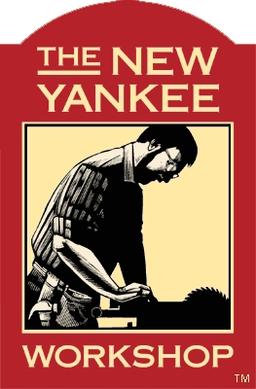I’ve found my finishing problem: I’m building things out of pine.
Traditional stain, gel stain, urethane, tung oil, danish oil…on oak, cherry or maple many of these look fine. No matter what I put on pine, it comes out looking like a septic prolapse.


What do you typically make, out of interest?
Well not finished pine, for starters.
Given I’m a carpenter whose trying out woodworking: sheds mostly.
Since March of this year I’ve built (not including a couple workbenches for my shop and various pressure treated outdoor projects) A medicine cabinet door, three bookcases, two decorative shelves, a replacement keyboard tray for my desk, two cutting boards, two sets of coasters, and I’ll have a pair of shaker-style end tables done and drying by Black Friday.
The medicine cabinet door is made of baltic birch ply, and is painted white.
Three bookcases: one smaller one made of select pine boards from Lowe’s, it’s wearing a couple layers of Minwax Polyshades in golden oak. The two larger ones (I iterated on the design showcased on Season 1 Episode 8 of the New Yankee Workshop.) Are also wearing Polyshades, in Pecan. They’re made of cabinet grade birch ply with more Lowe’s select pine for the face frame and trim.
Keyboard tray: Bought a jointer and planer, so it was time to practice milling and making panels. Meanwhile the particle board keyboard tray on my flat packed desk was starting to get knobbly and horrid from near-constant exposure to my wrist juice, so I bought a 2x4 and made it into a 1x12. It’s wearing Minwax mahogany flavored normal everyday yellow can stain with their Tung Oil Finish over it. The Tung oil finish didn’t do good things to that stain. It’s…not great.
Cutting boards and coasters…various hardwoods. The cutting boards are finished in a beeswax/mineral oil paste, the coasters in Minwax tung oil finish with no stain. These are fine.
Decorative shelves: A non-symmetrical floating wall shelf designed by my father, in walnut, with tung oil finish, no stain (who stains walnut?) They came out really good, though maybe not as glossy as I’d like? More coats of the finish would solve that.
As a “shop homework” project I made a 12" square raised panel out of some scrap pine and…whatever those ready made panels in the plastic wrap at Lowe’s are made of. Finished this with Minwax gel stain with tung oil finish on top. The stain actually dried and the oil finish didn’t move it around, but…the can called the color “walnut.” it looked more like “100 year old barn wall.” The simple back side of the panel took to this treatment better than the front did, because it matched the rustic feel of the stain more than the fancy beaded edge and raised panel did.
End tables: Table tops and lower shelves are white oak. The legs, apron and drawer fronts are longleaf pine, both sourced from a local sawyer, purchased as rough and milled myself. Trying out Watco’s danish oil on this project, cherry flavor. The tabletops are complete and two coats of the cherry Danish oil look absolutely spectacular. The drawer fronts are longleaf pine, finished them in the same Danish oil, following the instructions to “for soft porous woods such as pine, pre-treat by wiping with a cloth dampened with natural-finish danish oil then immediately wipe dry.” The result looked like a motorcycle accident.
I just now finished an experiment where I did the first whole wet coat and soak of natural, then one coat of the cherry. The results there are much more acceptable. I think that’s what I’m going to do on the pine components of this project, then spend the rest of my life making furniture from hardwoods.
You could try waxing the pine
Thanks for replying, that all sounds pretty cool!